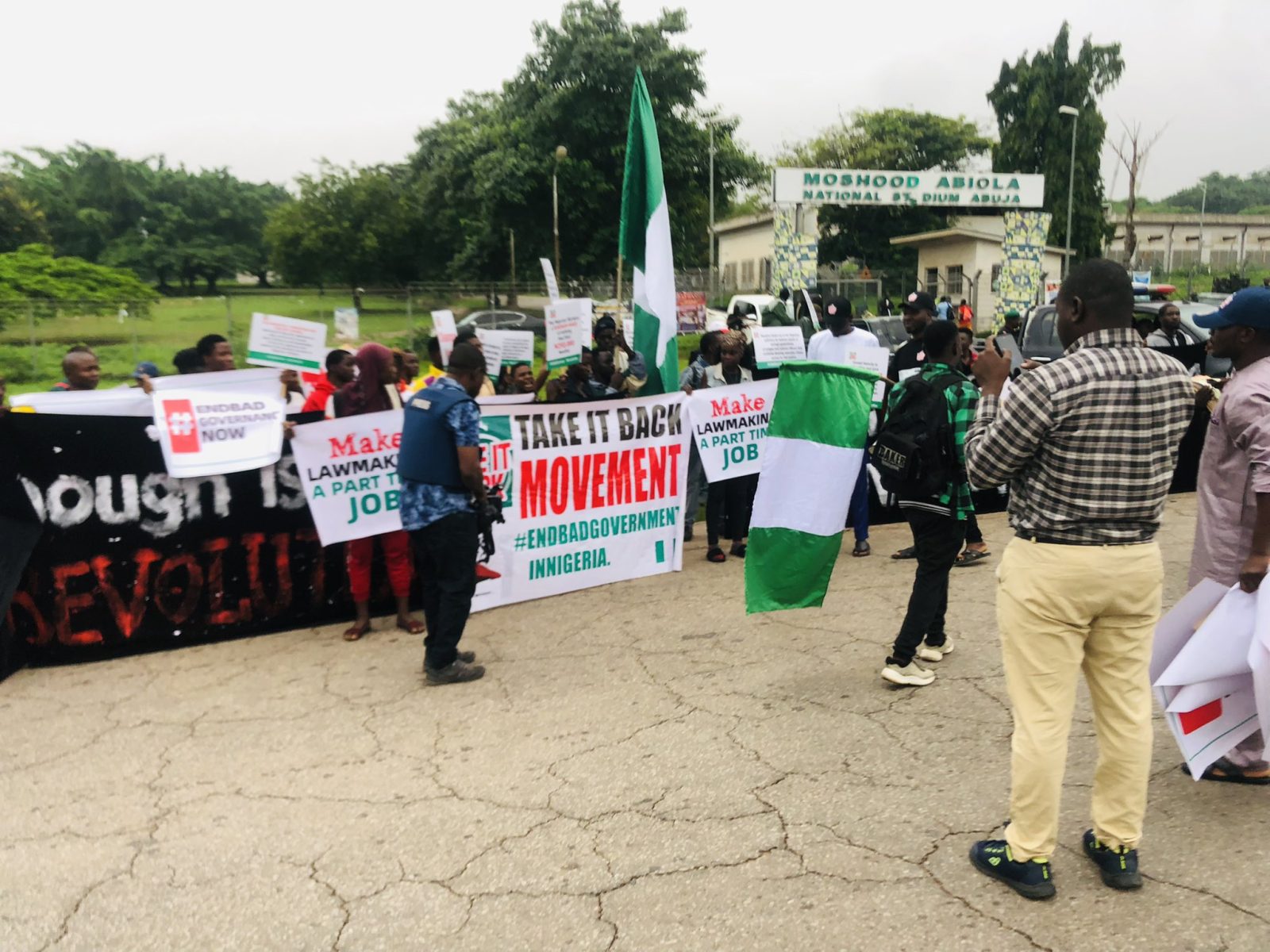In Abuja, the nation’s capital, there was a noticeable increase in security as the city prepared for the final day of a ten-day protest against economic hardship and poor governance. Though no large rallies took place on the last day, Ene Obi, the former Country Director of ActionAid, led her team in a peaceful sit-in at Moshood Abiola Stadium.

This group, along with many others, believes that the ten-day protest was a significant achievement. They hope the government will take note of the concerns raised and begin to engage more openly with citizens on these pressing issues.
The protests, which were named the #EndBadGovernance movement, emerged as a response to the growing economic challenges in Nigeria. Since President Bola Tinubu’s administration stopped the fuel subsidy and allowed the naira to float freely, the prices of basic necessities have skyrocketed, placing them out of reach for millions of Nigerians.
In response to the economic strain, the government has introduced several new policies, including a new minimum wage, in an attempt to lessen the impact of these harsh conditions. Despite these measures, the frustration among citizens led to widespread protests starting on August 1, with people in various parts of the country taking to the streets to demand a better economy.
Initially, the protests were mostly peaceful, but in some northern regions, the situation deteriorated into violence, with incidents of looting and destruction. This escalation forced several states to impose curfews as a way to control the unrest.
After days of growing tension, President Tinubu finally addressed the nation, acknowledging the protesters’ grievances and calling for dialogue. However, he remained firm on his decision not to reverse the removal of the fuel subsidy, a key demand of the demonstrators.
This response did not satisfy the protesters, and many returned to the streets, though with less intensity than before, continuing to press the government to meet their demands.




